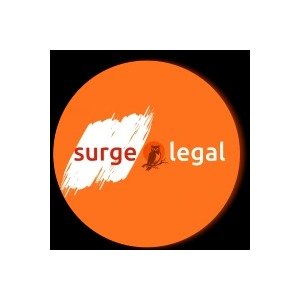Best Speeding & Traffic Ticket Lawyers in Gordon
Share your needs with us, get contacted by law firms.
Free. Takes 2 min.
List of the best lawyers in Gordon, Australia
About Speeding & Traffic Ticket Law in Gordon, Australia
In Gordon, Australia, the speeding and traffic ticket law is governed by the Road Transport Act 2013 and the Road Rules 2014. These laws promote safety on the roads by imposing speed limits and other rules, regulating the conduct of drivers, and penalizing violations. The severity of penalties depends on the gravity of the offence, repeat offenders may face stricter sanctions.
Why You May Need a Lawyer
Dealing with traffic infringement notices or speeding tickets can be procedurally complex. In certain situations, disregard for traffic rules may lead to demerit points, significant fines, or even loss of driving privileges. In such cases, a lawyer can aid in discerning your best course of action, potentially help you reduce the penalties, or even have the ticket dismissed. Particularly if this isn't your first offence, having the right legal counsel is even more critical to minimize the impact on your driving record and insurance premiums.
Local Laws Overview
The Road Rules 2014 sets various speed limits in Gordon, Australia, depending on the area - general speed limit in New South Wales is 50 km/h in built-up areas and 100 km/h outside these areas unless signed otherwise. Harsher penalties apply for speeding in school zones, or for exceeding the speed limit by more than 45km/h. Additional demerit points apply in long weekends and holidays. The accumulation of a certain amount of demerit points may lead to license suspension. Traffic offences also include not stopping at red lights, not complying with stop signs, and using a mobile phone while driving.
Frequently Asked Questions
1. Can I contest a speeding ticket?
Yes, you have the right to challenge the legality of a speeding ticket in court. You may wish to consult a legal professional to advise you on this process.
2. What happens if I accumulate too many demerit points?
If you exceed the demerit points limit (13 points for unrestricted drivers within 3 years), it could result in the suspension of your driving licence. However, options such as a Good Behaviour Period may be available if you haven't exceeded 15 points.
3. Can a lawyer help reduce my penalties?
Yes, a lawyer specializing in traffic law can help negotiate the terms of the punishment, potentially reducing the fine or preventing a license suspension based on various factors such as your driving record, circumstances of the offence, among others.
4. What if I get caught speeding in a school zone?
Speeding in a school zone is a serious offence and penalties are increased in these areas, often leading to higher fines and more demerit points.
5. Can I still drive if I receive a traffic ticket?
Ordinarily, you can still drive unless your notice specifically states that your license has been suspended immediately. Nonetheless, if you accumulate enough offences, this could lead to a suspension.
Additional Resources
Resources that can provide valuable insights include the NSW Roads and Maritime Services and the Law Handbook Online. Both of these platforms offer a wealth of information on traffic offences and the resultant processes.
Next Steps
If you require legal assistance for a speeding or traffic ticket, you should contact a lawyer who specializes in traffic law. They will be able to walk you through the process, discuss possible outcomes, and represent you in court if necessary.
Lawzana helps you find the best lawyers and law firms in Gordon through a curated and pre-screened list of qualified legal professionals. Our platform offers rankings and detailed profiles of attorneys and law firms, allowing you to compare based on practice areas, including Speeding & Traffic Ticket, experience, and client feedback.
Each profile includes a description of the firm's areas of practice, client reviews, team members and partners, year of establishment, spoken languages, office locations, contact information, social media presence, and any published articles or resources. Most firms on our platform speak English and are experienced in both local and international legal matters.
Get a quote from top-rated law firms in Gordon, Australia — quickly, securely, and without unnecessary hassle.
Disclaimer:
The information provided on this page is for general informational purposes only and does not constitute legal advice. While we strive to ensure the accuracy and relevance of the content, legal information may change over time, and interpretations of the law can vary. You should always consult with a qualified legal professional for advice specific to your situation.
We disclaim all liability for actions taken or not taken based on the content of this page. If you believe any information is incorrect or outdated, please contact us, and we will review and update it where appropriate.








